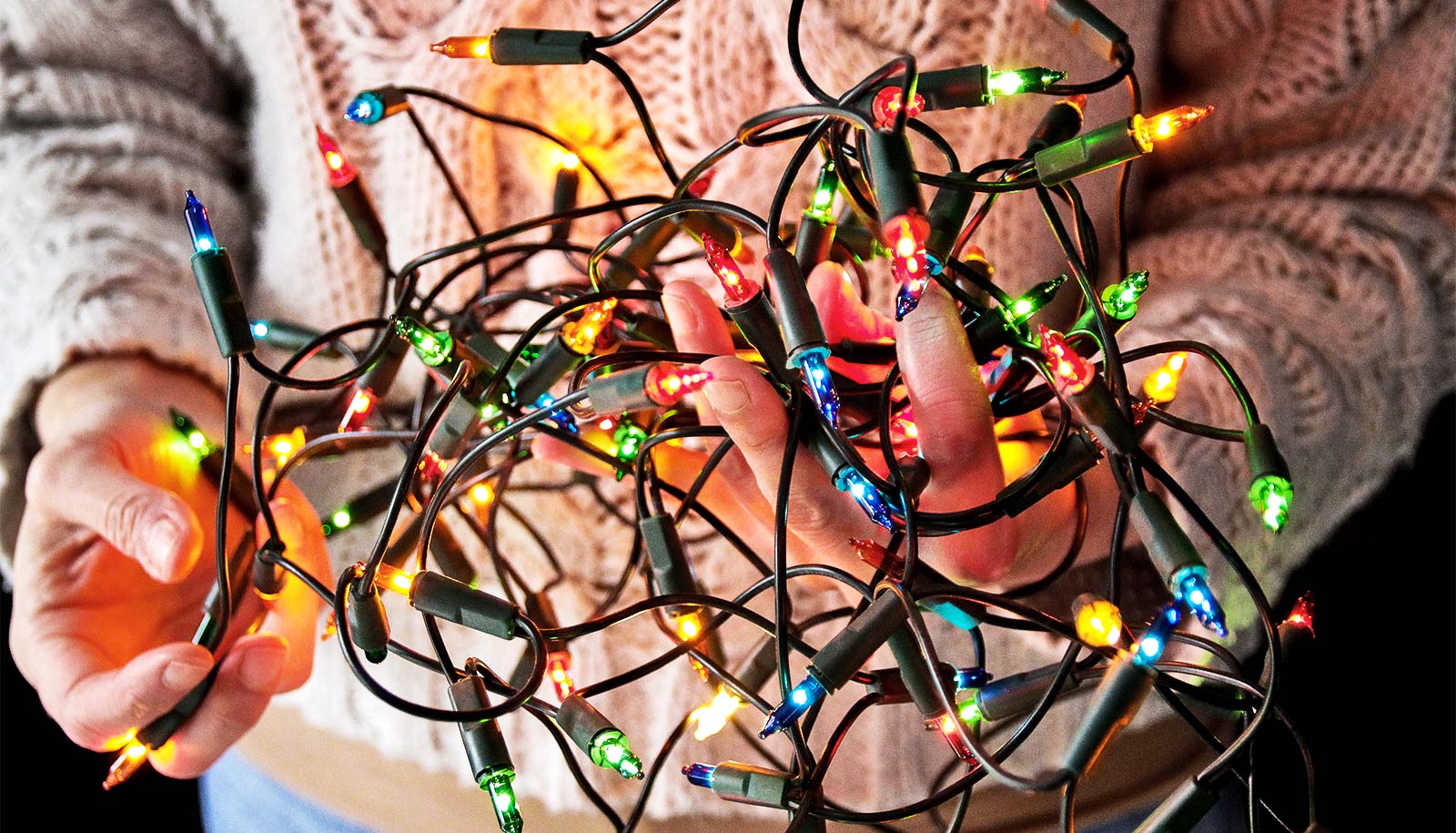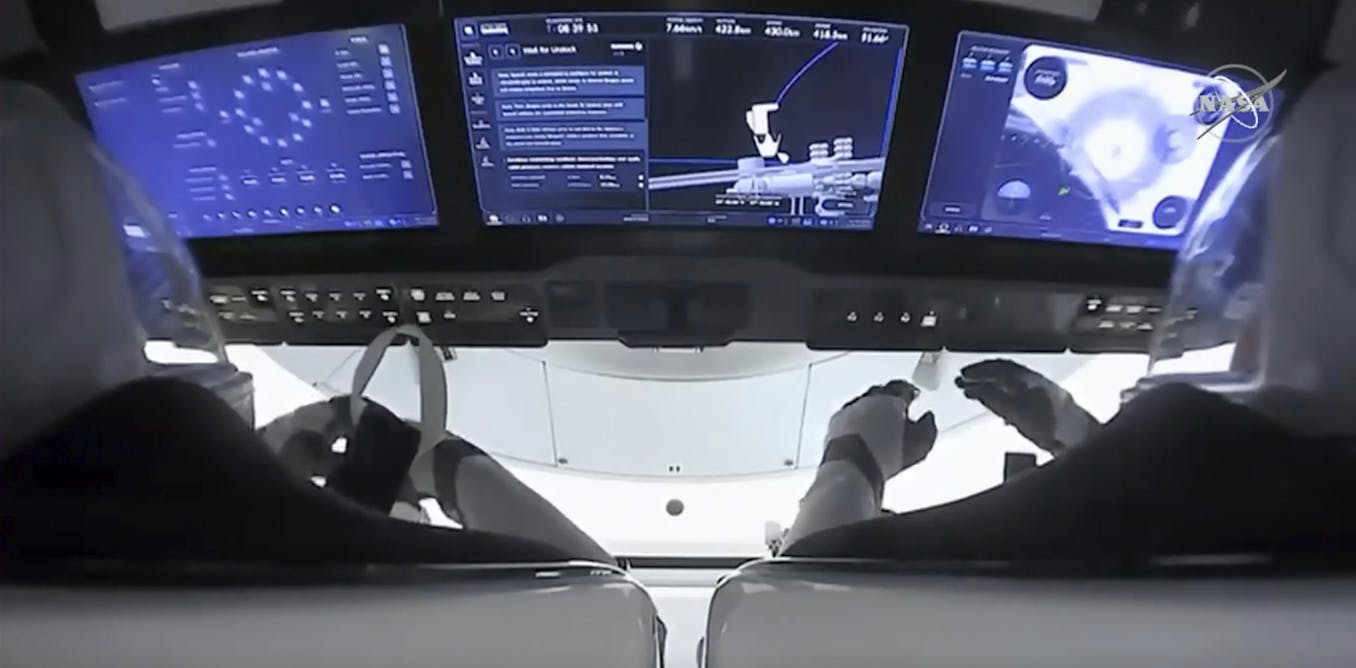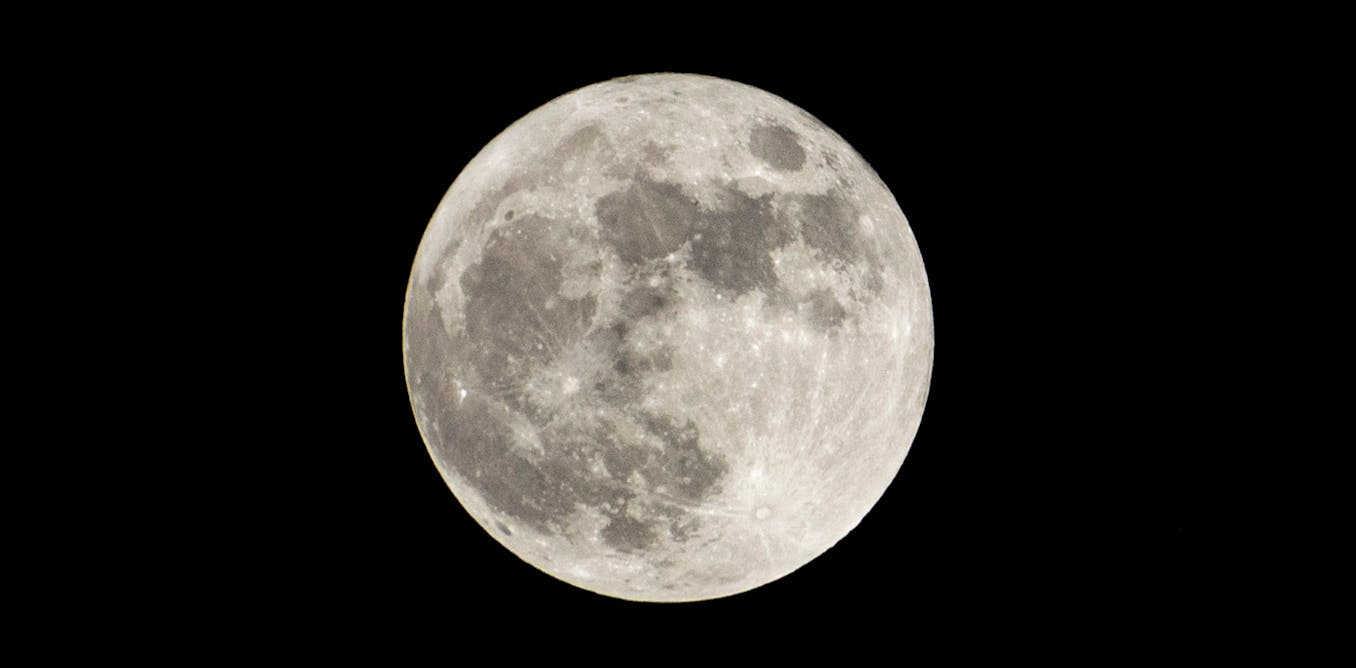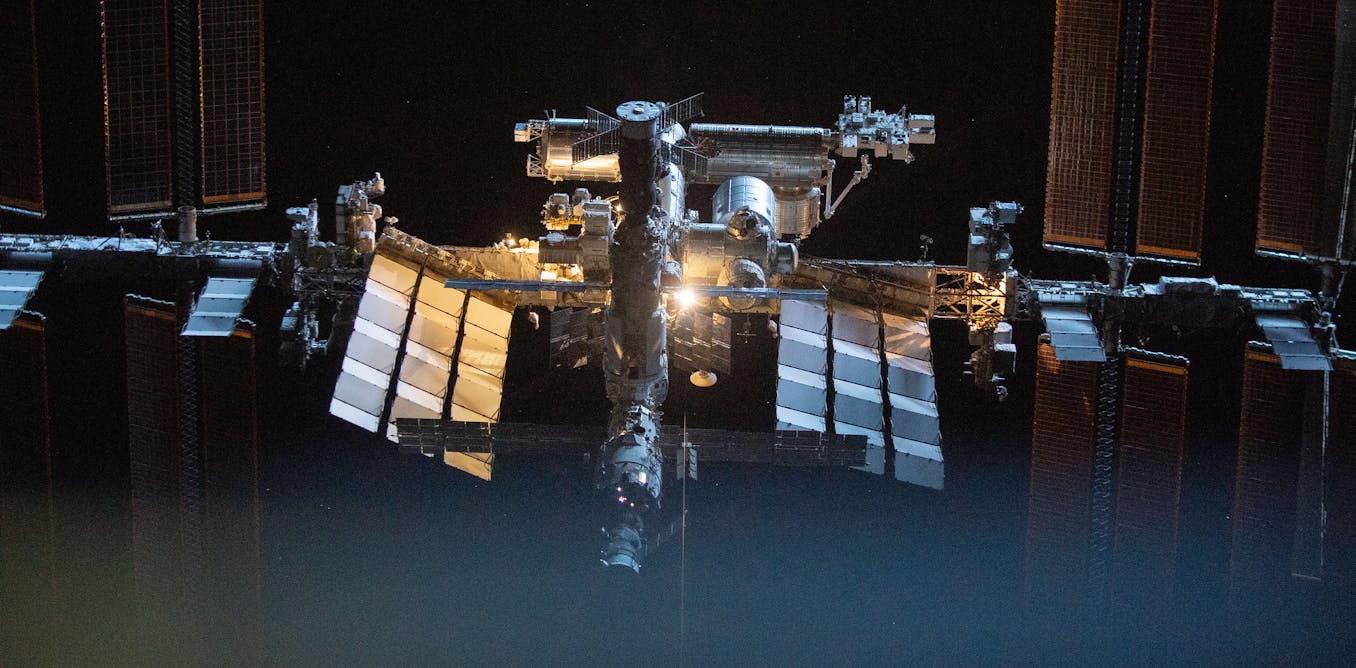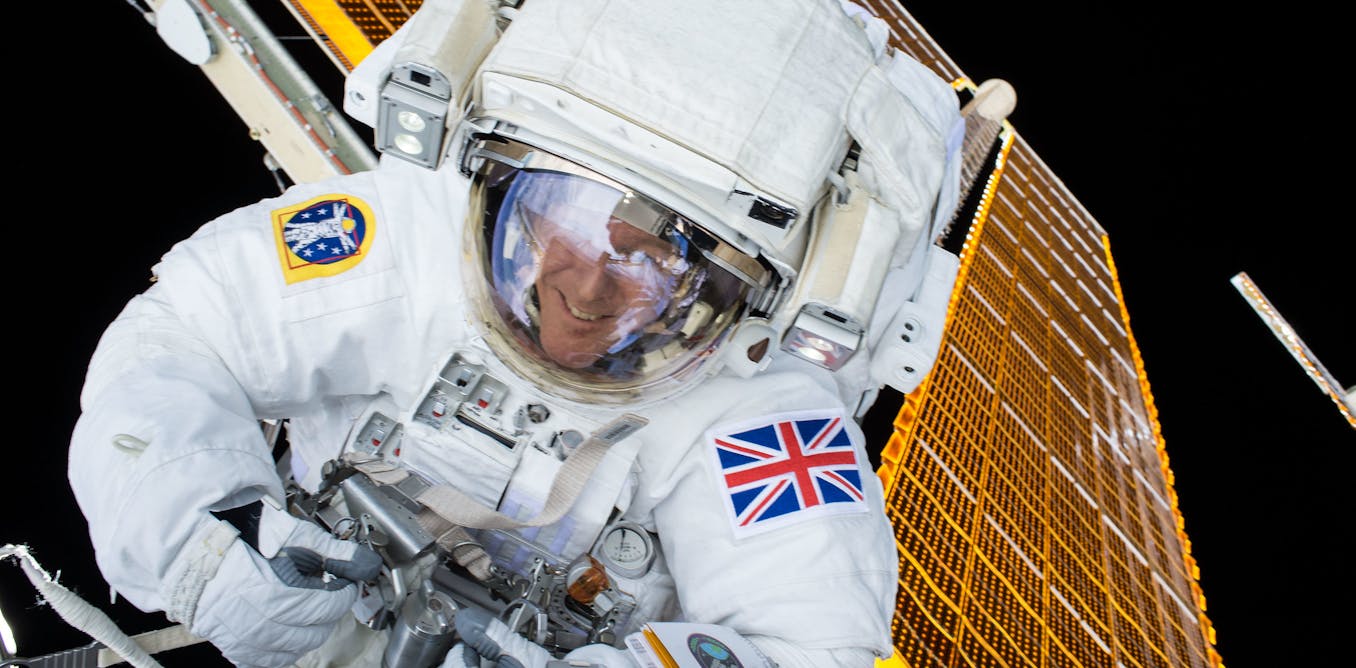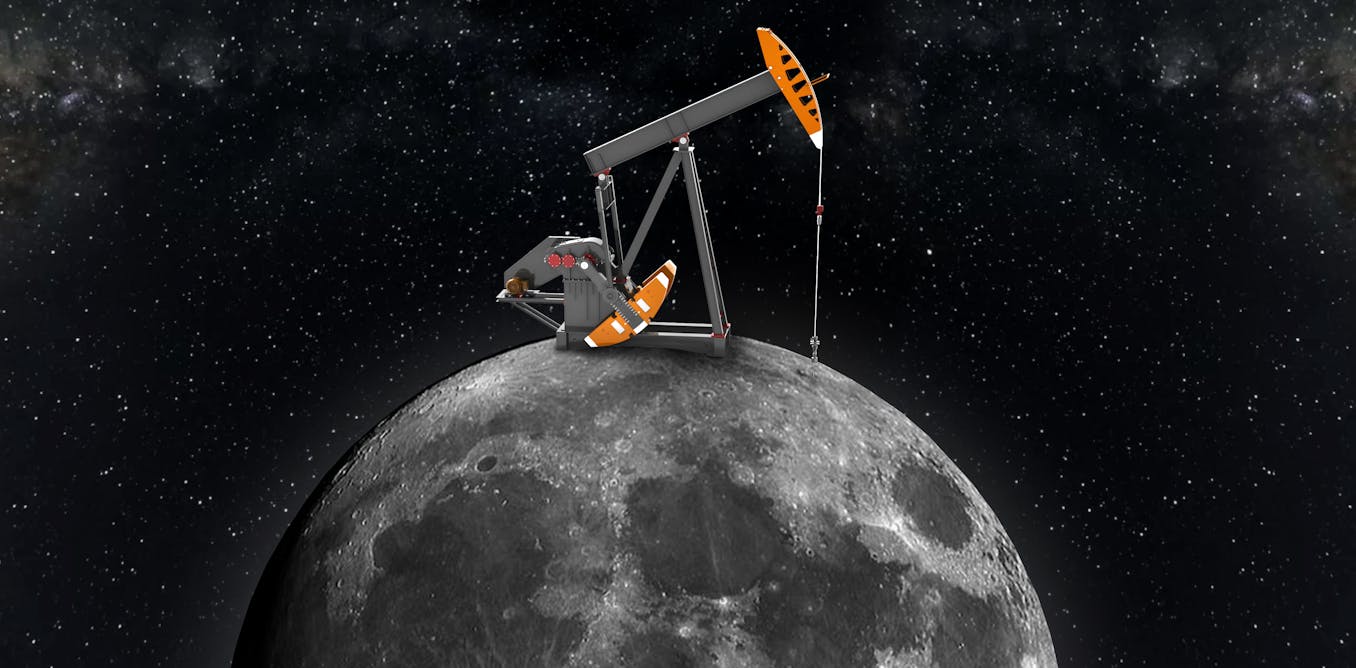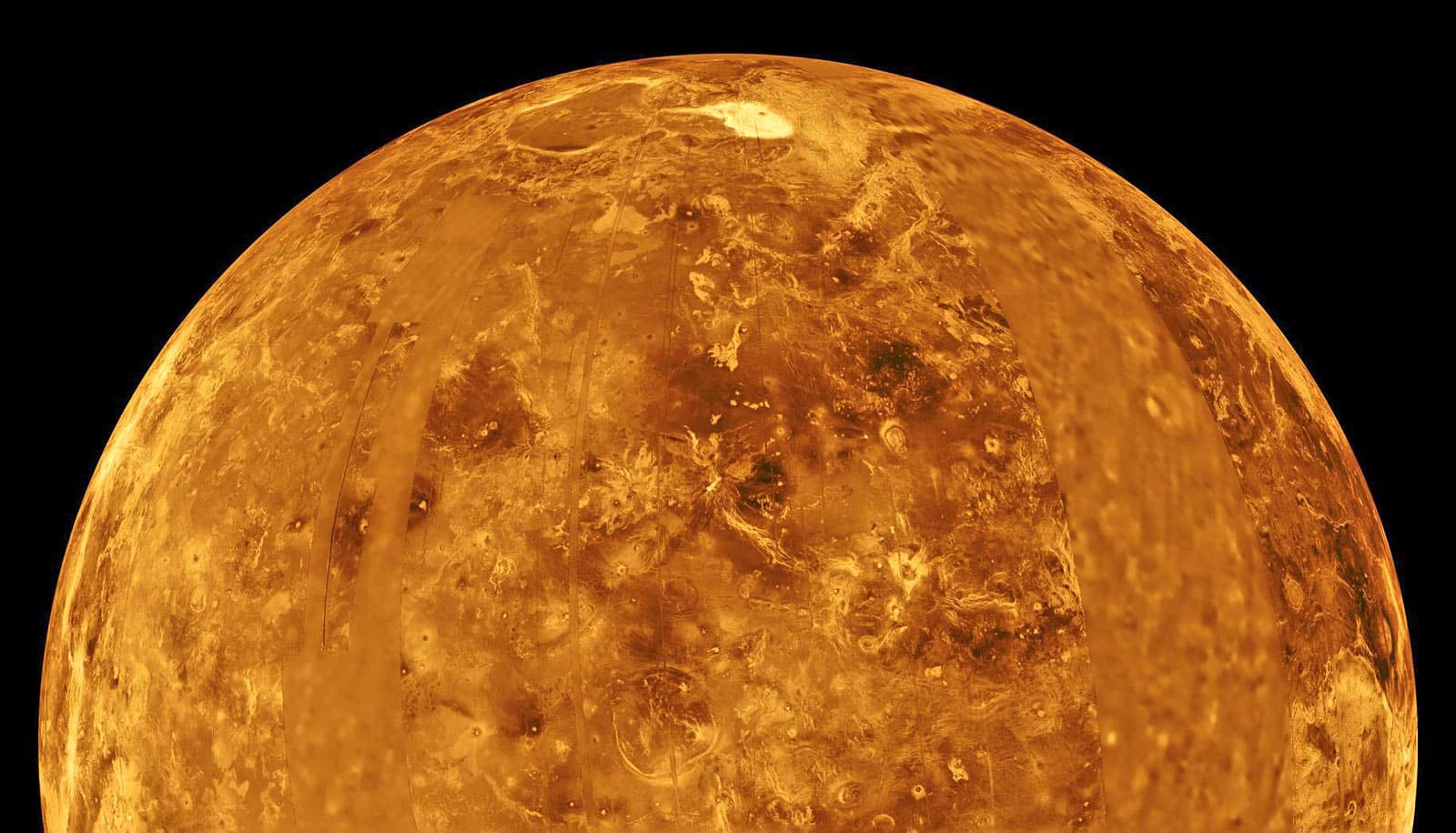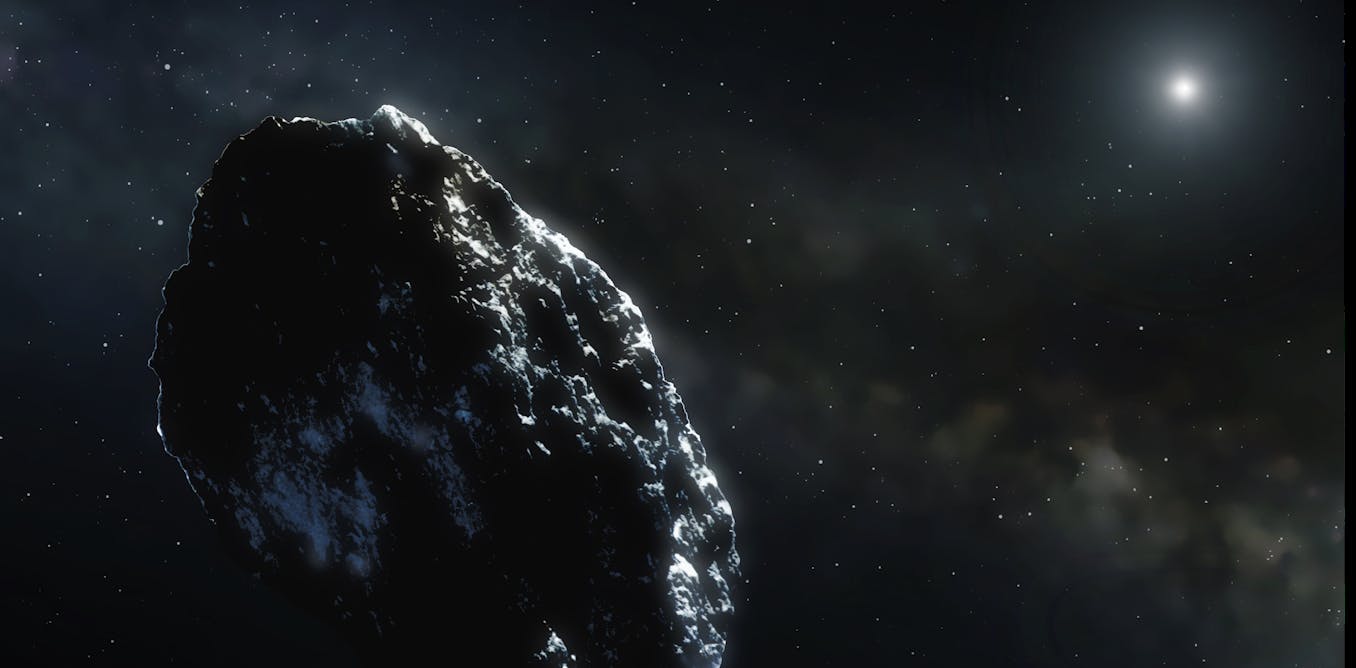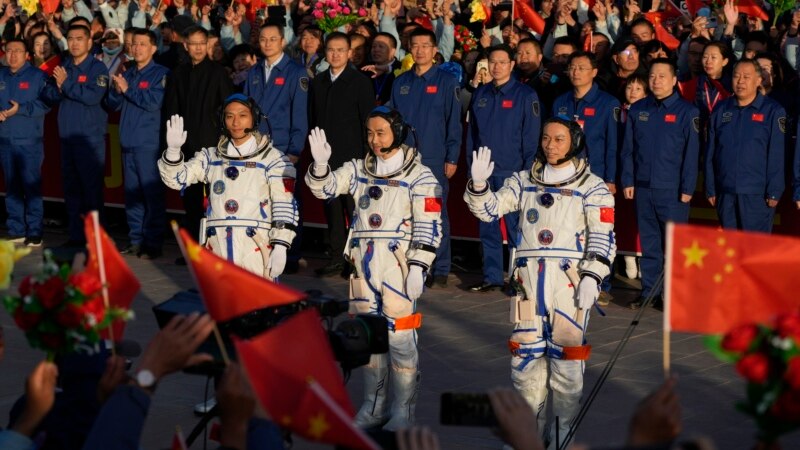Specialized training programs using sensory augmentation devices could prevent astronauts from getting disoriented in space
When you’re an astronaut landing on the Moon, you can’t rely on the same gravitational cues we have on Earth. But regimented training with sensory devices could one day prevent spatial disorientation.
Vivekanand Pandey Vimal, Research Scientist, Brandeis University •
conversation
Nov. 10, 2023 • ~10 min
Nov. 10, 2023 • ~10 min
Earth has many objects in orbit but definitely only one Moon – despite what some people think
Despite the distances involved, people as far apart as the UK and Australia can see the Moon at the same time.
Ian Whittaker, Senior Lecturer in Physics, Nottingham Trent University •
conversation
Nov. 9, 2023 • ~6 min
Nov. 9, 2023 • ~6 min
NASA's robotic prospectors are helping scientists understand what asteroids are made of – setting the stage for miners to follow someday
Upcoming NASA missions will help scientists understand the composition of asteroids – which could inform companies one day hoping to commercially mine asteroids.
Valerie Payré, Assistant Professor of Earth and Environmental Sciences, University of Iowa •
conversation
Nov. 2, 2023 • ~6 min
Nov. 2, 2023 • ~6 min
Asteroids in the solar system could contain undiscovered, superheavy elements
Scientists have been searching Earth’s surface for superheavy elements too difficult to make in the lab, but now, many are looking to the skies instead.
Johann Rafelski, Professor of Physics, University of Arizona •
conversation
Oct. 27, 2023 • ~8 min
Oct. 27, 2023 • ~8 min
/
133

